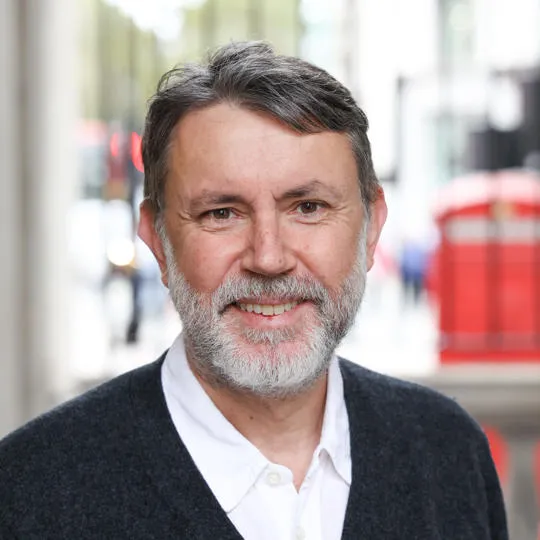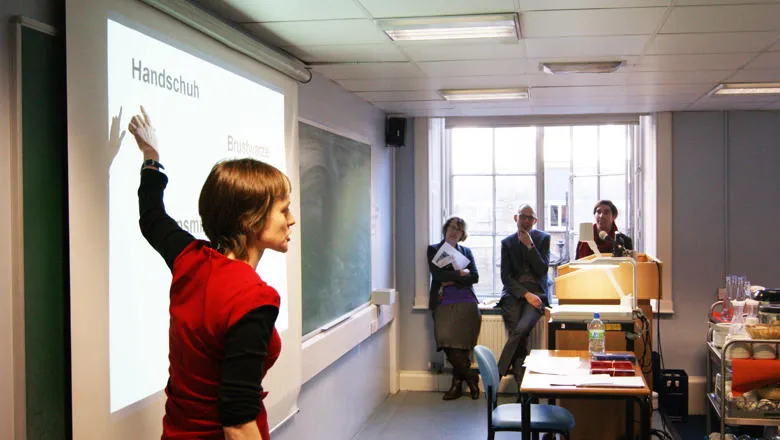
Professor Matthew Bell
Professor of German and Comparative Literature
Research interests
- Languages
- Literature
Contact details
Biography
I first studied Ancient Greek, Latin and German at Balliol College, Oxford (graduating 1987) before doing my PhD on Goethe and 18th-century anthropology under the supervision of Professor T. J. Reed (Oxford, 1991). During and after the doctorate I had spells in Munich, Tübingen and Berlin, as a Junior Research Fellow at Queen’s and Balliol, Oxford. In 1993 I joined the German Department at King’s, becoming Professor of German and Comparative Literature in 2007. From 1997 to 2017 I was an officer of the English Goethe Society (founded 1888), and I co-edited the Society's journal PEGS from 2005 to 2012. In 2002 with Professor David Ricks I founded the King’s Comparative Literature Programme, and I was its first Director from 2002 to 2011.
Research Interests and PhD supervision
- German literature and thought 1700-1850
- Goethe
- History of the human sciences, especially psychology
- Literature and mental illness melancholia
My research spans the long history of European literature and thought from classical antiquity to the nineteenth century. Three areas interest me especially: German literature and thought 1700-1830; neo-classicism and the classical tradition; the history of the human sciences (anthropology, psychology). Within these three areas, most of my work is concerned with the interface of literature and ideas.
I've worked on German authors 1750-1830 (Lessing, Goethe, Schiller, Moritz, Kleist, Büchner) and their contemporaries in France and Britain (e.g. Rousseau, Shelley), combining close reading with an awareness of the intellectual context. One of my current projects involves the connections between 18th-century European literature and the economics and politics of the publishing industry.
In my work on the classical tradition I’ve analysed the intertextual relations between German literature and Latin poetry (e.g. Lucretius, Martial, Juvenal), explored the reception of ancient art in the late 18th century, and developed new ways to contextualize and theorize neo-classicism.
The history of anthropology and psychology interests me in its own right, in particular the pre-history of experimental and depth psychology (The German Tradition of Psychology, CUP 2005), and the philosophy and history of mental illness from antiquity to c. 1800 (Melancholia: The Western Malady, CUP 2014). Psychology is a hitherto little explored context for 18th-century literature and a key plank in the philosophy of the Enlightenment (e.g. the theory of religious melancholia). My interest in this history is motivated by a desire to do justice both to socially constructed dimensions of the discourse on mental illness (especially gender) and the truth claims of science, where they are warranted.
If I were to commit to a single author, it would be Goethe — I’ve worked on his reception of ancient and modern literature (e.g. Shakespeare), anthropological thought (Goethe’s Naturalistic Anthropology, OUP 1994), and the philosophy of the 17th and 18th centuries (e.g. Kant). I’m currently working on a large-scale study of Goethe’s thought from Princeton University Press.
My research is motivated by a commitment to classical humanism, the values of the Enlightenment, the scientific worldview, and the virtues of historically based and philosophically alert scholarship.
Matthew welcomes applications for PhD topics related to any of his research interests. For more details, please see my full research profile.
Teaching
Professor Bell teaches BA and MA classes on the theory and methodology of Comparative Literature, and a comparative MA course on hypochondria and melancholia in 18th-century Europe.
Undergraduate modules:
- 4AAGA114 Texts and Contexts
- 5AAGB605 18th Century German Thought: The Education of Humanity
- 6AAGB212 Goethe: From Strum und Drang to Classicism
Research

Critical Economic and Political Thought
The group approaches the study of politics and economics from critical cultural perspectives including, but not limited to, history, literature, visual culture, performance and social activism.

presentPasts
Across the Faculty of Arts & Humanities, King’s academics study cultural interactions across time and the transhistorical traditions that often frame, foster, and shape them.
News
Research sheds new light on contradictions between Goethe's writing and political beliefs
Professor Matthew Bell, Professor of German and Comparative Literature in the Department of Languages, Literatures and Cultures, reveals how Johann Wolfgang...

Events

Mind the Gap! Concepts and Cultures of Distance in the Long 20th Century
Dr Marie Kolkenbrock joins the German Department Research Seminar
Please note: this event has passed.
Research

Critical Economic and Political Thought
The group approaches the study of politics and economics from critical cultural perspectives including, but not limited to, history, literature, visual culture, performance and social activism.

presentPasts
Across the Faculty of Arts & Humanities, King’s academics study cultural interactions across time and the transhistorical traditions that often frame, foster, and shape them.
News
Research sheds new light on contradictions between Goethe's writing and political beliefs
Professor Matthew Bell, Professor of German and Comparative Literature in the Department of Languages, Literatures and Cultures, reveals how Johann Wolfgang...

Events

Mind the Gap! Concepts and Cultures of Distance in the Long 20th Century
Dr Marie Kolkenbrock joins the German Department Research Seminar
Please note: this event has passed.
